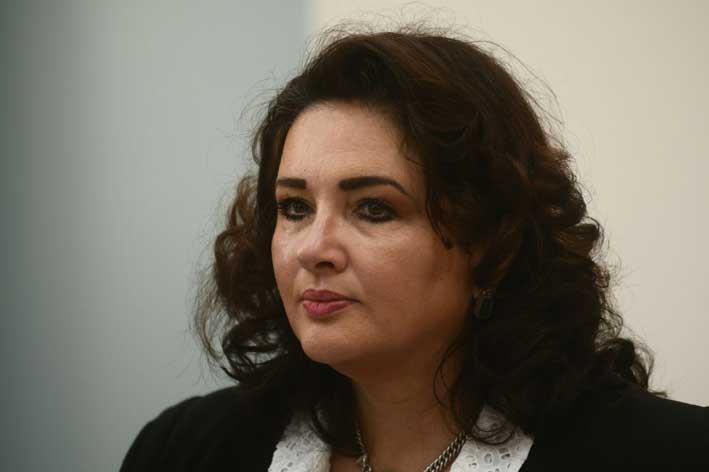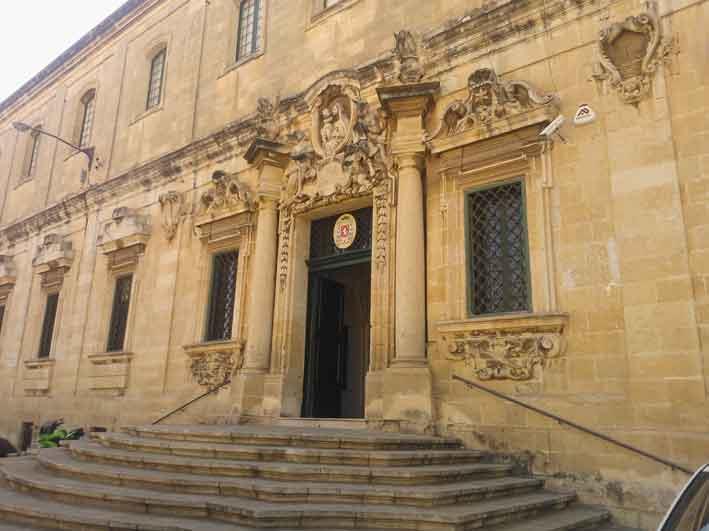“The Church is against every form of discrimination and for this reason supports the EU Directives which promote equality and prohibit discrimination, which the Government intends to bring together in the Equality Bill.”
He added that however that “the Bill being presented goes beyond the EU Directives and would encroach upon the religious freedom of the Church, religious organisations and practicing Catholics.”
Archbishop Charles J. Scicluna was meeting with Minister Helena Dalli to present her with a copy of the Position Paper on the Equality Bill prepared for the Church.
Archbishop Scicluna welcomed the Government’s intent of defending the dignity of every person against any form of discrimination. But changes should be made to the Bill so that the right to religious expression and to freely carry out their activities in accordance with their tenets of their respective faith would be fully respected.

Minister Dalli informed the Archbishop that she will address these concerns before the presentation of the Bill in Parliament.
The position paper presented to the Minister was prepared by a group of experts in law, human rights, theology, ethics and education. Its drafting was coordinated by the Faculty of Theology at the University of Malta. The position paper focuses on those provisions in the Bill, namely employment education and advertising that would compromise the Church’s mission and religious institutions in trying to maintain their particular ethos.
In their position paper the experts state that like freedom of expression, the right to freedom of thought, conscience and religion constitutes one of the foundations of a pluralistic society.
The experts maintain that the vague and broad definitions of ‘harassment’ and ‘victim’ endorsed in the Bill and their application to areas outside employment/occupation entail clear risk of subjective interpretation that can have a negative impact on the right to freedom of thought, conscience and religion. For instance, a display of a notice, billboard or flyer promoting marriage between a man and a woman could be prohibited, because it can be subjectively perceived as harmful to some groups. People may feel inhibited from making a statement (including to explain sincerely held doctrinal religious convictions) if they fear a person might claim vaguely defined elements such as the ‘violation of their dignity’ or the ‘creation of an offensive environment’ (chilling effect). The experts add that this situation gets more complicated with the reversal of the burden of proof endorsed by the Bill. Whoever is accused of ‘discrimination’ must prove his or her innocence, whereas the person claiming to be the victim of discrimination would be exonerated from bringing objective evidence. The Bill is not in line with standard procedural rights.

The Church’s position paper draws attention to the fact that the Bill is completely silent on conscientious objection. Any legislation on non-discrimination should give due attention to the question of exercising the right to conscientious objection. This right is commonly associated with a form of legally permitted exemption from certain obligations or prohibitions with which one may disagree on religious, ethical, humanitarian, or allied grounds.
Furthermore, the authors of the position paper point towards a significant difference between the EU Directive and the Bill being proposed by Government. The Directive, while establishing a general framework for equal treatment in employment and occupation, includes a specific provision regarding Churches and other public or private organisations the ethos of which is based on religion or belief.
Ill-advisedly, the Bill leaves out this important provision. This is of particular concern to the Church which offers a broad range of educational services particularly through its schools. Catholic schools are bound to nourish and promote a Christian spirit in the mind and conduct of their students. They can do this especially by creating and maintaining a Christian ethos within their environment. Without this provision the Church, for example, can be forced to employ educators who conduct public campaigns against some aspects of its teaching.
The position paper recommends that the Bill should include this provision which is part of the Directive of the EU establishing a general framework for equal treatment in employment and occupation. This provision would enable the Church to implement the equality principle within their institutions without distorting and going against (de facto renouncing to) its beliefs and ethical principles.
Church's position paper